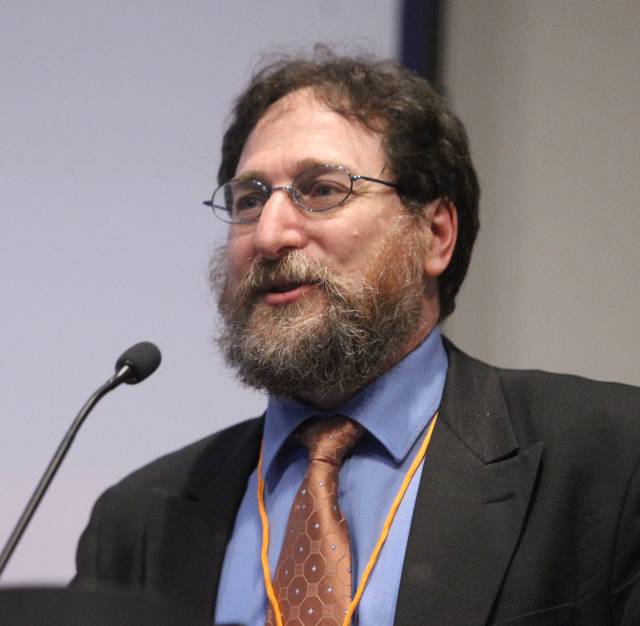Craig B. Arnold, the Susan Dod Brown Professor of Mechanical and Aerospace Engineering and director of the Princeton Institute of Materials, has been appointed Princeton University’s vice dean for innovation. He will begin the role July 1.

Craig B. Arnold has been appointed Princeton University’s vice dean for innovation. He will begin the role July 1.
Arnold will be the University’s second vice dean for innovation, a role established in 2020 to provide academic leadership for innovation and entrepreneurship activities across campus.
“Craig Arnold exemplifies the entrepreneurial spirit of Princeton,” said Princeton University Dean for Research Pablo G. Debenedetti, the Class of 1950 Professor in Engineering and Applied Science and professor of chemical and biological engineering. “Throughout the University, Craig is recognized for his pioneering research, his visionary leadership of the Princeton Institute of Materials, his entrepreneurship and his outstanding service on behalf of Princeton.”
Arnold succeeds Rodney Priestley, the Pomeroy and Betty Perry Smith Professor of Chemical and Biological Engineering, who served as inaugural vice dean for innovation beginning in February 2020. Priestley will become the dean of the Graduate School on June 1.
“Craig will be building on the extraordinary foundation established by Rodney Priestley during his visionary tenure as inaugural VDI,” Debenedetti said. “What is more, Craig will bring his own experiences, creativity and inspirational leadership to this role.”
The role of the vice dean includes strengthening the University’s capacity to engage with technology investors, industry, entrepreneurs, alumni and other potential partners. The position leads the Princeton Innovation initiative and oversees the University’s efforts to grow Princeton's culture of innovation across disciplines.
“The vice dean for innovation is the University’s representative for all innovation activities, connecting Princeton with external partners in industry, entrepreneurship, government and academia, and ensuring that faculty, students and staff can fulfill their aspirations to innovate in areas spanning research, education and service to humanity,” said Provost Deborah Prentice, Princeton’s Alexander Stewart 1886 Professor of Psychology and Public Affairs. “Craig Arnold brings to this position a wealth of firsthand experience in university innovation and entrepreneurship, and he has a long history of reaching across disciplines and across our campus community.”
As vice dean for innovation, Arnold will join the Office of the Dean for Research (DFR), and work closely with DFR offices including the Office of Technology Licensing, Corporate Engagement and Foundation Relations, and the Princeton Entrepreneurship Council.
“It is such an honor to take on this opportunity to build bridges between the different parts of the campus and the external community,” Arnold said. “Princeton is such an incredible place for innovation, and I am thrilled to be able to serve the community and to help people create impact in ways that benefit society.”
Arnold has served since 2015 as the director of the Princeton Institute of Materials. He leads a vibrant research program that ranges from basic science to applied technology aimed at developing a deeper understanding of materials synthesis and processing in areas including advanced manufacturing, energy storage and conversion, and optics and photonics.
In 2017, Arnold received an Edison Patent Award from the Research & Development Council of New Jersey for the creation of an adjustable lens that focuses light in response to sound waves. The tunable acoustic gradient (TAG) lens is now used in many industrial and research applications including robotics, machine vision, industrial metrology and ultra-high precision microscopy.
Arnold holds 13 granted patents, and is the co-founder of two companies based on research conducted at Princeton. TAG Optics Inc. developed the TAG lens and was later acquired by a major precision instrument manufacturer. Invictis Technologies is working to create a safer and less painful automated intravenous injection device.
Arnold is a preeminent researcher in the field of materials science; he and co-authors have published over 200 scientific papers and book chapters. He serves as a member of the National Research Council’s National Materials and Manufacturing Board and is a fellow of the Society of Photo-Optical Instrumentation Engineers (SPIE) and the Optical Society of America.
Arnold was named a Knight of Laser Technology (2018) by the International Academy for Production Engineering (CIRP)-Photonic Technologies. He has received a number of prominent industry awards for his technology including R&D World magazine’s R&D 100 award, the SPIE Prism Award for Photonics Innovation, and Vision Systems Design magazine’s Innovators Award. Arnold has received prestigious federal awards and grants, including the National Science Foundation CAREER Award and the Office of Naval Research (ONR) Young Investigator Award.
Recognized widely for his mentorship and teaching, Arnold has advised many undergraduates, graduate students and postdoctoral researchers. He has received the Princeton Undergraduate Engineering Council Teaching Award (2009, 2017 and 2022) and the School of Engineering and Applied Science Excellence in Teaching Award (2019 and 2021). Arnold is a member of the executive committee for Princeton’s Entrepreneurship Certificate Program and the executive committee of the Andlinger Center for Energy and the Environment.
Arnold holds a Ph.D. in experimental condensed matter physics from Harvard University and a B.S. from Haverford College. He was a postdoctoral researcher at the Naval Research Laboratory prior to joining the Princeton faculty in 2003.






